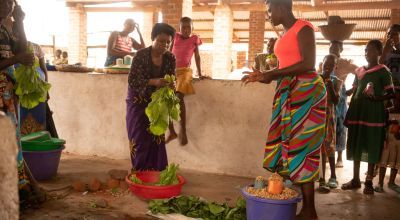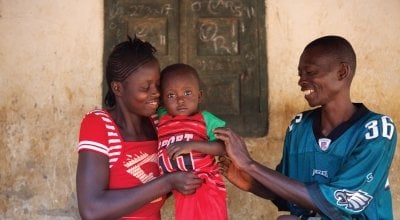
Read our 2024 annual report

Knowledge Hub
Gender discrimination happens, on some level, in every country in the world. In this blog, we will look at the different types of gender discrimination and how it can affect women across the globe.
Gender discrimination reveals itself in many different forms, sometimes obvious and sometimes not.
Unequal treatment of people based on their gender has lifelong and generational impacts. Millions of women worldwide are denied access to education, health services and economic opportunities, experience reduced access to food or live in fear of gender-based violence (GBV). According to the United Nations, women around the world between the ages of 24 to 35 are 25% more likely than men to live in extreme poverty.
In the world’s poorest countries, these issues are often exacerbated as women already feel trapped or powerless as a result of poverty and conflict. They also experience inequalities in access to and control over resources. In order to understand how we can help empower women and help them to turn the tide against inequality, we first must explore the challenges facing them.
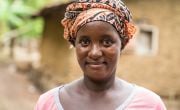
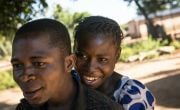
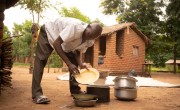
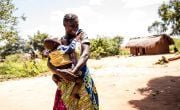
What does gender discrimination mean?
Gender discrimination is the unequal or disadvantageous treatment of a person based on their gender.
Women and girls are most likely to experience the negative impacts of gender discrimination. It can mean restricted access to education, a lower standing in society, less freedom to make decisions around their personal and family life, and lower wages for the jobs and work they do. Women and girls also experience rampant levels of violence and harassment.
Gender equality is important in order to rectify the injustices that women face and has benefits for society as a whole. Improving gender equality stimulates economic growth and creates much-needed employment.
How does gender discrimination affect society?
Gender discrimination harms all of society, with gender stereotypes putting pressure on people of all genders to live up to an unrealistic ideal. It starts in early childhood and follows people all the way into adulthood, depriving them of opportunities and experiences.
Gender discrimination and inequality across the globe impacts the economy, education, health and life expectancy. Below we'll explore in more detail the realities of gender inequality for millions of women around the world.
Gender discrimination and poverty
Poverty and inequality are some of the clearest examples of how gender discrimination harms society. In most countries women represent the majority of the poor.
Women grow between 60% and 80% of the world’s food but often they have reduced access to the materials they need and even the food they produce. By increasing women’s access to land ownership, new skills and tools, food production as a whole increases and hunger is reduced.
The COVID-19 pandemic has seen many more women pushed into extreme poverty. A recent report from UN Women estimates that 121 women per 100 men will be living in extreme poverty (on US$1.90 or less per day) by 2030.
Job losses resulting from the crisis have particularly affected female employment and income. Informal employment and the services industries are where 740 million women around the world find paid work, and they’re the areas that have been the hardest hit by lockdowns and slowdowns.
Gender discrimination and the workplace
Progress has been made but men still outnumber women in paid employment, business and political life.
Women work two-thirds of the world’s working hours but only earn 10% of global income. Women continue to be unfairly burdened with unpaid domestic and care work, which limits their ability to participate in paid employment.
In 2020, only 47% of women of working age participated in the labour market, compared to 74% of men – a gender gap that has remained relatively consistent since 1995.
Women’s representation in the political sphere has more than doubled globally but it still only brings the percentage of female parliamentarians to 25%. Moreover, women make up just 22% of the world’s cabinet ministers.
In 18 countries husbands can legally prevent their wives from working, while in 38 economies there are no laws prohibiting the dismissal of pregnant women by their employers.
Gender discrimination and health
Gender inequality damages not just the physical and mental health of millions of girls and women worldwide, but also boys and men.
Women are restricted in their access to basic health care and services, and often don’t receive equal treatment or care for the same medical complaints as men. Women’s symptoms can often be dismissed. According to a 2018 medical review in the US doctors are more likely to view women’s chronic pain as psychological, exaggerated, or even made up, in comparison with men’s pain.
In addition to many women suffering from reduced access to healthcare, far too many are suffering from the physical and mental effects of gender-based violence. More than 30% of women worldwide have experienced physical or sexual violence at some point in their lives. Aside from the associated injuries, these forms of violence can also lead to depression, post-traumatic stress and other anxiety disorders, sleep difficulties, eating disorders, and suicide attempts.
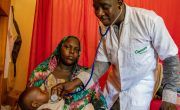
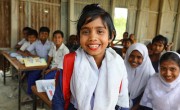
What are specific examples of gender discrimination?
Legal rights of females are not equal to men
In the World Bank’s 2019 report, 187 countries were measured on their levels of gender discrimination. Only six countries gave women and men equal work rights. The level of disparity in legal rights of men and women varies from country to country, but the result remains the same; women receiving unfair legislative treatment. Nearly 40% of economies limit women’s property rights. In 43 countries women’s inheritance rights are limited in comparison to men’s.
Access to health services may not be the same
Historically, women and girls have received restricted access to healthcare - often leading to unfair health outcomes. More than 350,000 women die each year in childbirth or from complications relating to childbirth and 99% of these deaths happen in low income countries. The vast majority of these deaths are avoidable and show why it is important to consider the different needs of men and women when working on issues such as health care.
More recently, the COVID-19 pandemic is having an unequivocally detrimental effect on women’s wellbeing, especially in our countries of work at Concern. If you’d like to know more about this impact, you can read more here.
Access to education
Almost 130 million girls are without access to education. There has been progress in recent years at primary school level (approximately four to 11-years-old), with almost two-thirds of countries worldwide with equal numbers of girls and boys in school. This number decreases to 51% when we get to lower secondary education (approximately 12 to 16-years-old), and dramatically reduces to 24% when girls get to upper secondary school age (approximately 16 to 18-years-old).
Girls are being denied their basic right to education, which brings significant benefits to girls and society from improved economic opportunities to reductions in child marriage, teenage pregnancy, malnutrition and maternal and child mortality.
We have seen that increasing girls' access to education saves lives. It is estimated that for every year of education that girl receives, their children’s risk of infant mortality is reduced by 5%-10%. It is also estimated that if all mothers completed secondary education, there would be three million fewer child deaths per year.
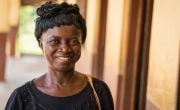
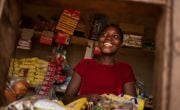
How can gender discrimination be reduced?
Through acknowledging the different aspects of gender discrimination and working together to raise awareness, we can help eradicate it and the harm it causes society.
Gender equality is one of the 17 Sustainable Development Goals, and it’s incorporated into all of Concern’s country programmes and projects.
Our teams are currently working to make a real impact in the communities we work in, helping to eliminate gender discrimination and improve the quality of life for all.
Access to capital to start their own livelihoods
Thousands of women face violence and uncertainty on the streets of Bangladesh but an innovative programme aimed at lifting people from extreme poverty is creating hope for the future.
Funded by Irish Aid, the ‘Improving the Lives of the Urban Extreme Poor’ programme builds on the success of an initial four-year project and is aimed at assisting women living in extreme poverty in Dhaka and Chattogram City. Access to services is provided through ‘Pavement Dweller’ centres and severe acute malnutrition facilities which Concern has helped establish.
These centres were designed with input from the cities' most at-risk individuals to meet basic needs. Women can avail of child day-care services which allow them the opportunity to work knowing their children are being well looked after. Psychosocial support, parenting training and medical services provided by the centres have been described as life-changing by the women who have availed of them. The centres also focus on building the confidence of women who have been oppressed by helping them create a better life for themselves and their families.
We are helping women do this by providing wide and varied supports such as skills training, asset transfers, savings facilities, nutrition support, classes on gender equality and prevention of gender-based violence, improved hygiene and sanitation facilities and promotion of improved hygiene practices. We advocate for improved service delivery and support a number of Pavement Dweller Centres.
To address the issue of gender inequality and gender based violence in the broader community, local influential people and change makers are involved. There are also training courses for men and boys which use activities and exercises to understand gender roles, relations and violence against women. These courses also explore the role of men as nurturers and caregivers.
Access to information and education
Education is one of the best tools we have in our fight to reduce gender discrimination. School fees can be an enormous barrier for education, particularly for disadvantaged girls. In Kenya, our cash transfer programme is making it possible for girls to follow their ambitions through education. In 2019, we helped more than 625,000 girls to stay in school.
Global campaigns like ‘16 Days of Activism Against Gender Based Violence’ help to highlight the terrifying reality that women and girls face and provides them with the chance to highlight the issues they face, as well as empowering those affected to hold perpetrators of abuse to account. Ultimately, global campaigns like this help to create changes necessary for schools to become a safer place for girls to learn and grow.
Find out more
If you'd like to find out more about our approach to address gender inequality, see the link below.



